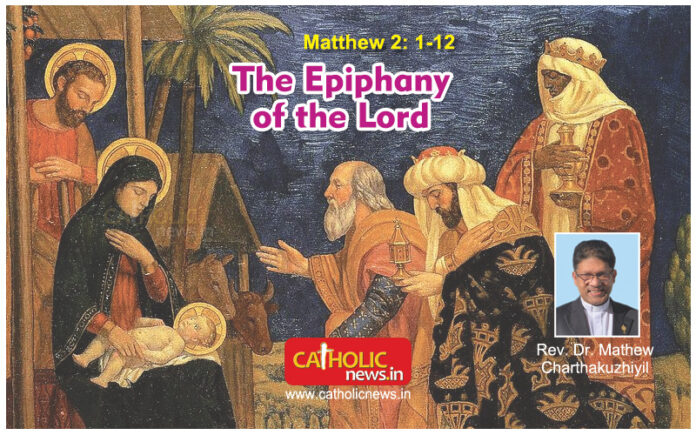
Today, we celebrate the feast of the Epiphany, the day Jesus Christ is revealed to the world as the Light of the World. The word epiphany means a “manifestation” or “revelation.” This feast reminds us of the universal scope of God’s salvation. The journey of the Magi and their encounter with the Christ child invite us to reflect on our own faith journey and the ways we respond to God’s invitation.
The Magi, or Wise Men, come from the East, searching for the newborn King of the Jews. They were guided by a star on their journey. After seeing the sign of the star in the sky, Magi decides to set out on a journey. They are telling us that they have a desire to seek something greater than them. It is a journey of faith with a longing for God, a yearning for truth, beauty, and meaning.
The journey of the Magi was not easy. They left their homeland, faced uncertainties, and endured hardships to find the King. This reminds us that following Christ often requires sacrifice. Faith is not always comfortable or convenient. Like the Magi, we are called to persevere in our spiritual journey, trusting that the destination is worth the sacrifice. We also must be willing to make sacrifices to find Christ and to develop a relationship with him.
Finally, they arrive in Bethlehem and find Jesus with his mother Mary. Then they prostrate themselves and offer gifts of gold, frankincense, and myrrh. Each of these gifts has a deep symbolic meaning: Gold symbolizes Jesus’ kingship. He is the King of kings, whose reign is one of justice and peace. Frankincense represents his divinity. It is used in our churches during worship, pointing to Jesus as God made flesh. Myrrh foreshadows his suffering and death. It is a burial spice, reminding us that Jesus came to save us through his sacrifice.
Their gifts reveal that the Magi recognized Jesus for who he truly is: the King, the Son of God, and the Savior of the world. This moment is the heart of the Epiphany—the manifestation of Jesus to the nations. In the Magi, we see the fulfillment of Isaiah’s prophecy from the first reading: “Nations shall walk by your light, and kings by your shining radiance” (Isaiah 60:3). Christ is the Light for all people, breaking down barriers of race, culture, and language.
In the Gospel, we see contrasting responses to Jesus. The Magi respond with faith, humility, and worship. In contrast, Herod reacts with fear and hostility. He sees Jesus as a threat to his power and tries to eliminate him. These responses remind us that Christ demands a choice. We must approach Jesus with open hearts, like the Magi, rather than resisting him like Herod. The Magi’s humility and willingness to bow before the child challenge us to reflect on our own attitudes. Now we must allow Christ to reign in our hearts rather than cling to our own plans and priorities.
The Epiphany is not just a celebration of Christ’s manifestation; it is also a call to mission. The Magi returned to their homeland, transformed by their encounter with Christ. Though they traveled “by another road” to avoid Herod, they undoubtedly carried the light of Christ with them. We, too, are called to share the light of Christ with the world. We must seek Christ, offer our gifts to him, and then become a reflection of the light of Christ in the world. The Epiphany is a celebration of God’s universal love and a call to respond to his revelation in our lives. Let us go forth, carrying the joy of the Gospel to a world in need of hope and salvation.
Rev. Dr. Mathew Charthakuzhiyil



